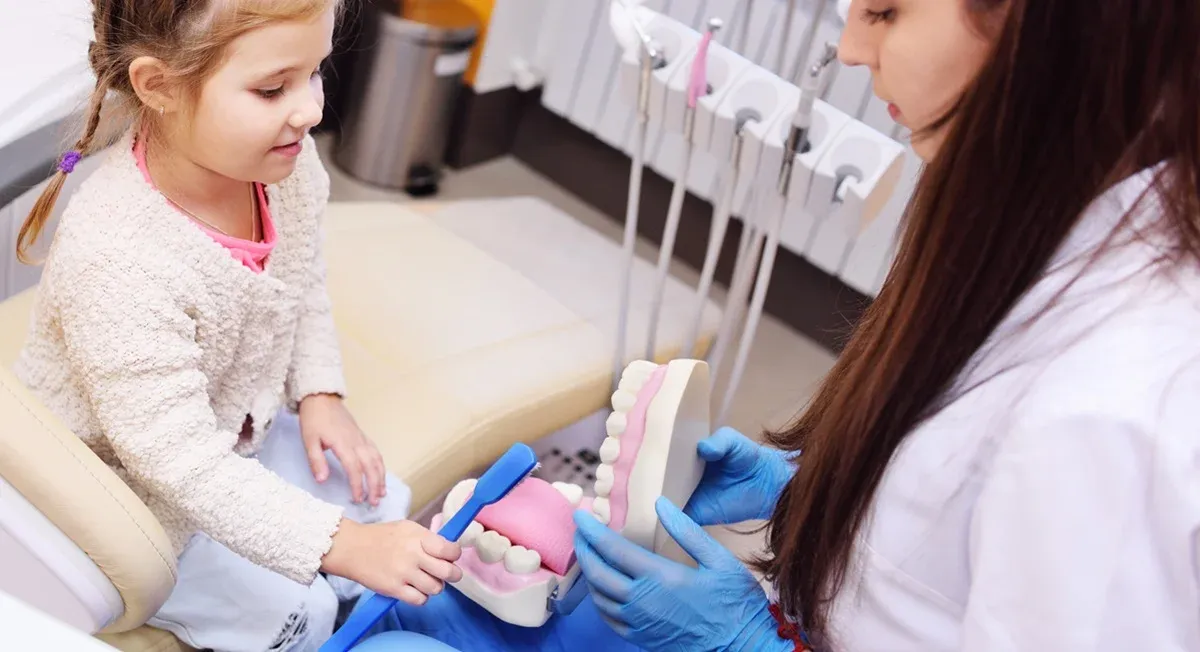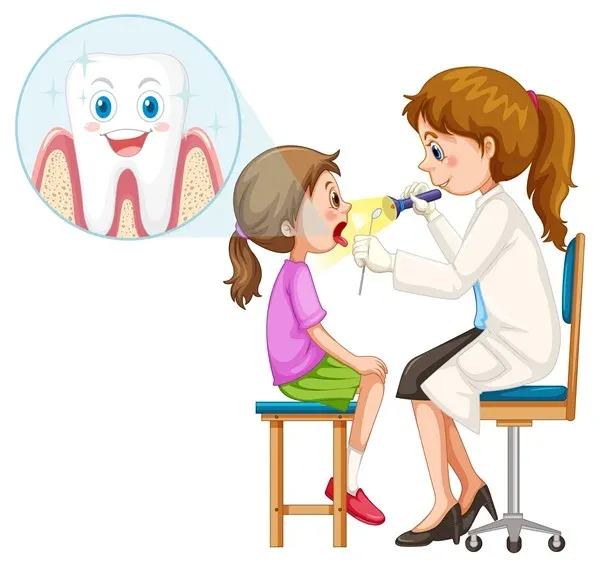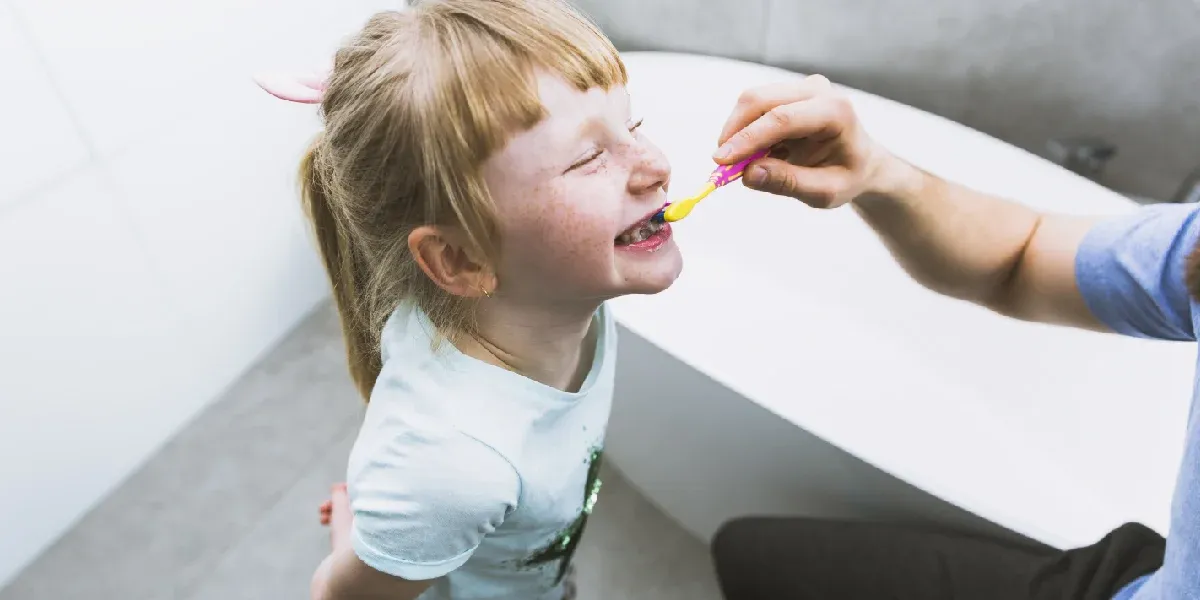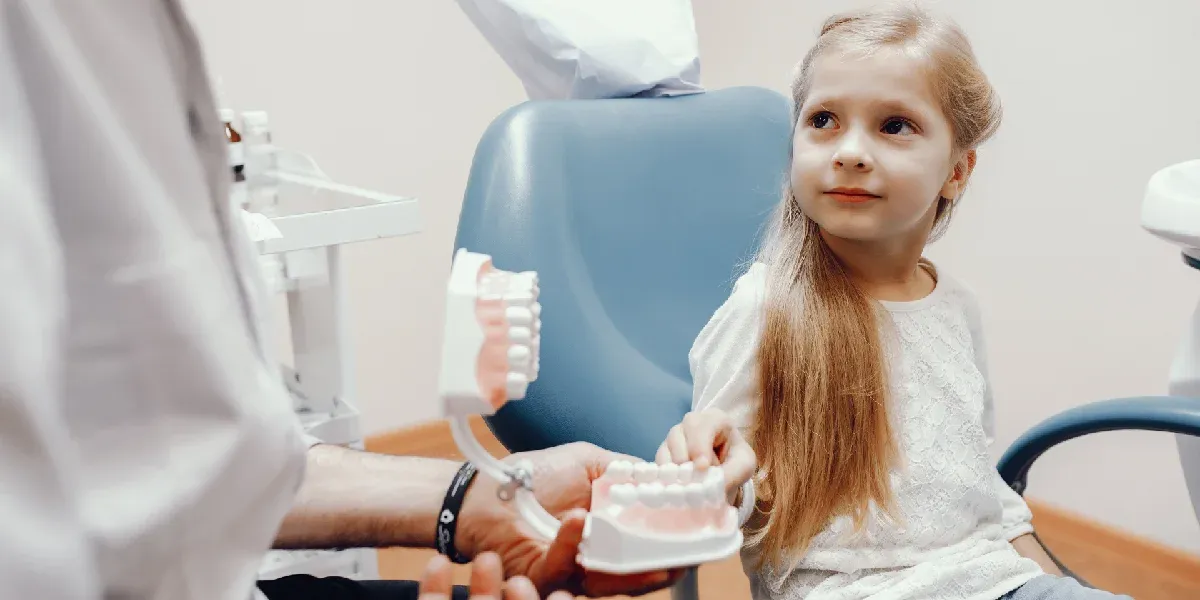
Kids' Oral Health: Understanding the Importance of Early Dental Care
Oral health is essential to your child's overall well-being, yet it's often overlooked in the early years. Many parents might assume that baby teeth aren't as important since they eventually fall out, but this couldn't be further from the truth. Establishing good dental care habits early on helps prevent cavities and gum disease and sets the foundation for a lifetime of healthy smiles.
Early dental care plays a crucial role in your child's development. Every stage of dental growth is essential, from the first tooth to the permanent set of teeth. The habits they form now will stick with them as they grow, making it vital to start proper oral care as soon as possible.
In this blog, we'll explore why early dental care is necessary, when to start bringing your child to the dentist, and how to encourage good oral hygiene habits at home. Understanding the importance of early dental care can help ensure your child grows up with a healthy, confident smile.
Why Early Dental Care is Crucial
Imagine your child flashing a big, confident smile. That smile is more than just adorable—it's a sign of good health! But did you know that taking care of those tiny teeth from the start significantly keeps that smile bright for years?
Prevention is Better Than Cure
Early dental visits are a secret weapon against cavities, gum disease, and other dental issues. By catching problems early—or better yet, preventing them altogether—you're saving your child from discomfort and potentially complex treatments down the road. Plus, starting young helps kids get comfortable with the dentist, turning what could be a scary experience into something they look forward to.
Building Healthy Habits
The habits your child picks up now will stick with them for life. Introducing brushing, flossing, and regular dental check-ups early sets them up for a future filled with healthy teeth and fewer dental problems. It's like giving them a head start in the race for lifelong oral health!
It's Not Just About Teeth
Did you know your child's oral health can affect their overall well-being? Poor dental hygiene can lead to infections that may spread to other body parts. Additionally, healthy teeth are essential for proper chewing, speech development, and even self-esteem. When kids feel good about their smiles, it shows!
The Big Picture: Overall Development
Teeth play a surprising role in your child's development. Proper dental care supports everything from their ability to speak clearly and confidence in social situations. Early care ensures that their teeth and gums develop correctly, paving the way for strong, healthy, permanent teeth.
When to Start Dental Care for Kids
When it comes to your child's dental health, the earlier you start, the better! But when exactly should you schedule that first dental visit? Many parents are surprised to learn that the answer is sooner than expected.
First Dental Visit: The Sooner, the Better.
The American Academy of Pediatric Dentistry recommends that a child's first dental visit be around when their first tooth appears or by their first birthday—whichever comes first. This early visit is crucial because it allows the dentist to check the development of your child's teeth and gums, ensuring everything is on track. Plus, it's an excellent opportunity for parents to learn how to care for those tiny teeth right from the start.

Regular Check-ups: A Habit Worth Keeping.
Once that first visit is out of the way, it's important to maintain regular dental check-ups every six months. These routine visits are key to catching any potential issues early, whether a small cavity or advice on teething troubles. Regular check-ups also help your child get comfortable with the dentist, making future visits a breeze.
Starting dental care early and sticking to a regular schedule is the best way to ensure your child's teeth stay healthy as they grow. And remember, the dentist is your partner in shining your child's smile brightly!
Tips for Parents to Encourage Good Oral Hygiene
Encouraging your child to take care of their teeth can be fun and effective with these simple tips:
Make Brushing Fun
Let your child choose their toothbrush—one with their favorite character or a fun design.
Use kid-friendly toothpaste in flavors they enjoy.
Play a song or use a brushing app to ensure they brush for two minutes.
Incorporate Healthy Foods
Serve plenty of fruits, vegetables, and dairy products for teeth.
Limit sugary snacks and drinks to reduce the risk of cavities.
Explain how healthy eating helps keep their teeth strong and clean.
Make Flossing Easy
Start with floss picks, which are easier for kids to handle than traditional floss.
Integrate flossing into their nightly routine, making it a habit before bedtime.
Remind them that flossing removes food particles and plaque that brushing can't reach.
Common Pediatric Dental Problems and How to Avoid Them
Understanding common dental issues in children can help you prevent them before they become serious problems. Here are a few to watch out for:
Cavities
Cavities, or tooth decay, are caused by plaque buildup, a sticky film of bacteria that feeds on sugars in the mouth.
- Prevention: Ensure your child brushes twice daily with fluoride toothpaste and flosses daily, and limit sugary snacks and drinks. Regular dental check-ups are also ideal for catching cavities early.
Thumb Sucking
Thumb sucking is a natural habit for many babies and toddlers, but prolonged thumb sucking can affect the alignment of teeth and the shape of the mouth.
- Prevention: Encourage your child to stop thumb-sucking by age 4. Providing positive reinforcement, such as praise or rewards for not sucking their thumb, can be effective. If the habit persists, consult your dentist for advice.

Teeth Grinding (Bruxism)
Some children grind their teeth at night, which can wear down teeth and cause discomfort.
- Prevention: Monitor your child for signs of teeth grinding, like complaints of jaw pain or worn teeth. If you suspect bruxism, talk to your dentist about potential solutions, such as a night guard.
Dental Emergencies
Accidents happen; sometimes, a child may chip, crack, or knock out a tooth during play or sports.
- Prevention and Response: Ensure your child wears a mouthguard during sports and active play. If a dental emergency occurs, contact your dentist immediately for advice on how to handle the situation.
By being aware of these common dental issues and knowing how to prevent them, you can help keep your child's smile healthy and strong.
Final thoughts
Early dental care is more than just about keeping your child's teeth clean—it's about setting them up for a lifetime of healthy smiles and overall well-being. By starting regular dental visits from a young age, encouraging good oral hygiene habits at home, and choosing the right pediatric dentist, you're taking significant steps to ensure your child's dental health.
Remember, the habits your child forms now will stick with them throughout their life. So, make brushing and flossing fun, be mindful of their diet, and keep up with regular check-ups. Your efforts today will pay off with fewer dental problems and a confident, happy smile for years.
Now is the perfect time if you haven't scheduled your child's first dental visit yet. Investing in their dental health early on is one of the best things you can do for their future. Here's to happy, healthy smiles!
Contact your kids' dentist in Stockton, Dr. Sajjad Rizvi, D.D.S. at Happy Kids Dental, to know more about Kids' Oral Health: Understanding the Importance of Early Dental Care.
Resource:
*This media/content or any other on this website does not prescribe, recommend, or prevent any treatment or procedure. Therefore, we highly recommend that you get the advice of a qualified dentist or other medical practitioners regarding your specific dental condition*
Subscribe To Our Newsletter
Get Updates And Learn From The Best


